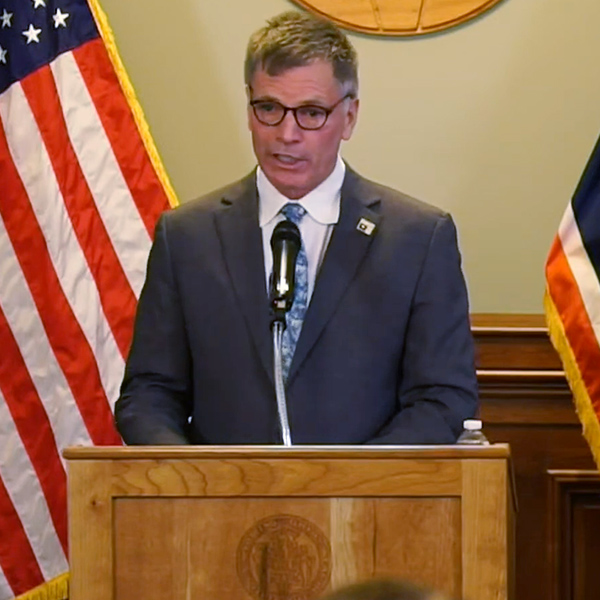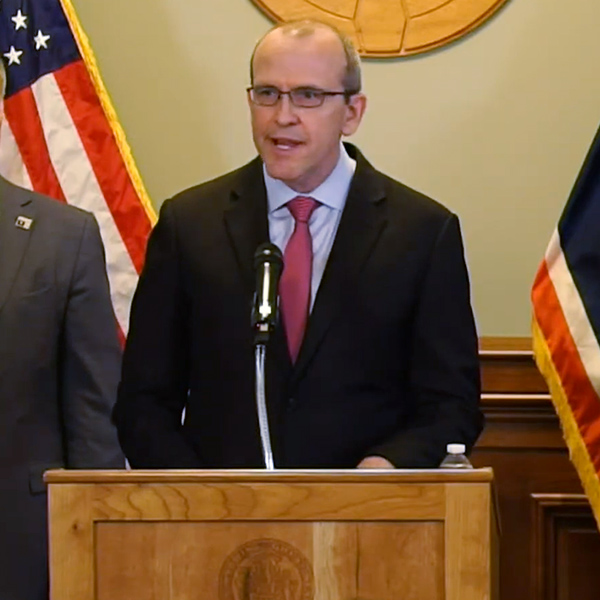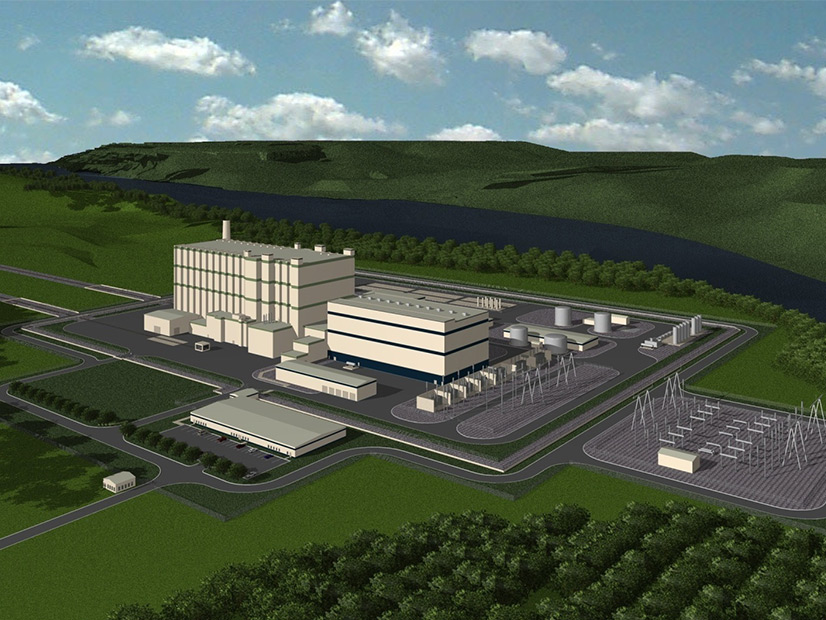One of Wyoming’s four coal plants will be closed, and the site repurposed for a 345-MW advanced nuclear reactor that will also include molten-salt storage and provide hundreds of permanent jobs for the former coal plant’s workers, officials said Wednesday.

A still-to-be-determined Wyoming site for TerraPower’s Natrium reactor was announced Wednesday at a high-profile event clearly intended to send a strong message of bipartisan support for nuclear. The project is one of two chosen to receive millions in federal funding from the Department of Energy’s Advanced Reactor Demonstration Project.
Secretary of Energy Jennifer Granholm said the project will show “the future of nuclear energy is here. [The Natrium reactor] has got a simpler design that will hopefully result in faster construction and lower costs. It’s going to create a smaller footprint; it’s going to be equipped with next generation safety measures, and it’s going to run at temperatures high enough to produce efficient and carbon-free hydrogen on top of the usual power generation.”

Republican Gov. Mark Gordon sees the project as a vital part of his goal, announced in March, of making the state carbon-negative while continuing to use fossil fuels, while also developing the state’s uranium resources. “This nation is a leader in uranium, and it makes sense to use Wyoming uranium to furnish feedstock for this plant,” Gordon said, adding that it will be “built and operated in a manner that supports our commitment to protecting and enhancing our wildlife and our environment.”
Advanced nuclear “is another way to diversify our already strong energy economy,” said Sen. John Barrasso (R-Wyoming), who sponsored legislation to allow for the licensing of advanced nuclear reactors, signed by former President Trump in 2019. “The energy is going to be affordable, reliable and carbon-free. This is what … energy innovation looks like in America.”

Barrasso is the ranking member on the Senate Energy and Natural Resources Committee, where he has been an outspoken critic of President Biden’s clean energy initiatives. (See Barrasso: Biden Climate Plan a Retread of Obama Failures.)
Ongoing commitments to coal and job creation were also strong themes at event. Gary Hoogeveen, CEO of PacifiCorp’s Rocky Mountain Power (OTCMKTS: PPWLM), a partner on the project, said it will create “hundreds of construction and permanent jobs in Wyoming coal communities. And I want to repeat something for emphasis here: We are not accelerating coal retirements or coal unit closures. By adopting this technology and building this demonstration project, it’s quite the opposite.”
He said it had not yet been decided which of the utility’s four coal-fired power plants in the state would be retired to make way for the Natrium project.
“We will need thousands of highly skilled workers to help us build the Natrium plant, and hundreds more workers to operate it for decades to come,” TerraPower CEO Chris Levesque said. “That’s part of why we’re here in Wyoming. Wyoming knows how to build and operate energy facilities.”
Designed to Support Renewables
While not yet at a tipping point, support for advanced nuclear reactors is gaining momentum across the country. President Biden’s 2022 budget includes a $5 billion line item for the federal government to procure advanced nuclear energy over the next decade. (See Clean Energy Wins, Fossil Fuels Lose in Biden Budget.)
NuScale Power of Portland, Ore., recently signed a memorandum of understanding with the Grant County Public Utility District to see if its small modular reactor design can be used in what could be Washington State’s first reactor complex to go online since 1984. (See Wash. PUD, NuScale Sign MOU to Explore Use of Small Reactors.)

Microsoft co-founder Bill Gates founded TerraPower in 2008 based on the belief that carbon-free nuclear is the only power source that can “solve the dual challenges of global energy poverty and climate change,” he said. “But nuclear power, like every other technology needs to innovate and adapt. It needs to become less expensive; it needs to provide an even stronger safety case.”
Whether the Natrium project will help build Wyoming’s uranium industry remains an open question. According to information on the TerraPower website, the Natrium reactor to be built in the state is a “liquid sodium-cooled fast reactor” that uses depleted uranium as fuel. One of the reactor’s selling points is that it will reduce the need for uranium mining and for facilities for storing spent fuel.
“The Natrium system is unique in that it is tailored to support electricity grids with a growing mix of renewables,” Levesque said. “It is the first nuclear concept to integrate large scale energy storage capability. This addition allows the plant to flex electricity production up and down with changing demand, and when faced with challenges or when faced with changes in the availability of wind and solar on the grid.”

The molten-salt storage can boost the plant’s capacity up to 500 MW for 5.5 hours, providing enough electricity to power 400,000 homes, a company press release said.
DOE is providing initial funding of $80 million for the Natrium plant in Wyoming and another $80 million for a demonstration project to be built by X-energy, another advanced nuclear company that has developed a high-temperature, gas-cooled plant. According to the October 2020 announcement of the awards, the department plans to spend an additional $3.2 billion to help build the two plants over the next seven years “subject to the availability of future appropriations.”
PacifiCorp’s Rocky Mountain Power is another partner in the project. Hoogeveen said nuclear plants like the Natrium project will be essential for utilities to decarbonize their power supplies and maintain “24/7-365” reliability. “We are currently building a lot of wind and solar,” he said. “But we know you can’t do 100% renewable and battery power and serve 24/7 [power], not with the current technology.”
But, Hoogeveen cautioned, the reactor still has to get through rigorous permitting and the utility’s own due diligence. “This project needs to be cost effective for our customers in order to proceed,” he said. “We will show that through our integrated resource plan. We will bring that to our regulators and all the stakeholders that we have, and we will show them that this is in the best interest of our customers.”




